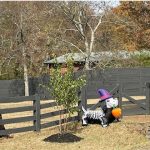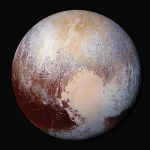 One day the rain just stops. A day goes by, a few days, then a week, then more weeks. You notice that the grass is getting brittle and dry and the ground is rock hard. Then the grass turns the color of sand and even the air seems brittle with the dryness of it. The weather reports become numbingly uniform: sunny every day. Reports of record-breaking temperatures become repetitive. Something in the back of your mind says that this is wrong, but the heat saps any energy you might have for thinking about it.
One day the rain just stops. A day goes by, a few days, then a week, then more weeks. You notice that the grass is getting brittle and dry and the ground is rock hard. Then the grass turns the color of sand and even the air seems brittle with the dryness of it. The weather reports become numbingly uniform: sunny every day. Reports of record-breaking temperatures become repetitive. Something in the back of your mind says that this is wrong, but the heat saps any energy you might have for thinking about it.
On your way home from work each night you start counting the number of neighbors who are watering their yards, the ones who stand out because their grass is a patch of emerald in a sea of buff and sepia. You get wicked ideas about sneaking into their yards and cutting their hoses with a pair of garden shears in the middle of the night. Maybe they’ll pay a fine for using so much water.
Maybe you should think about xeriscaping, but this isn’t the desert. The rain will come back eventually, won’t it?
Desiccated tree branches fall in the yard. No need to move them just yet. The lawnmower sits in the garage, its small reservoir of fuel sending out a slow stream of fumes.
One morning you notice a spider hanging in her web next to your house. She’s brown and white speckled with big yellow dots on her abdomen. You saw her early in the spring, just like you watched her mother, her grandmother, and a whole line of her great-grandmothers going back several years.
The lack of rain affects everything up and down the food chain, and you haven’t seen as many rabbits, snakes, or even squirrels as usual. This spider, like you, is not native to North America; her ancestors probably came with yours, around three centuries ago. She’s nocturnal so it’s strange that she’s still out on a sunny morning when the temperature is already higher than it would be at noon in a normal year.
You fill a birdbath in the backyard. You fill another in the front yard. You watch cardinals, bluejays, even a sleek-headed crow dip their beaks in it. You watch squirrels come to drink then flip the birdbath over. It’s only a few minutes before you go to put it back and refill it but the ground is already dry.
You have a side bed of morning glories and other small plants. After the sun goes down you turn the nozzle on the hose to “mist” and you realize you can’t remember the last time you heard a tree frog. They always sing in the dark after it rains.
Wildfires, floods, hurricanes, tornadoes, and even tsunamis are all horrible, often tragic events that come in suddenly, sometimes with no warning, or not enough warning, but then they disappear, often as quickly as they came. Flood and tsunamis recede, wildfires burn out all their fuel or, hopefully, are stopped, and tornadoes just spin themselves out.
A drought is a tragedy in slow motion.
One day it will rain again and when it does it will be terrible, the water overflowing the earth unprepared to hold it.






This isn’t a comment on your horrifying and possibly likely blog, just a notification that for some reason, clicking on your “like” button doesn’t register. It looks like it’s registering, but my nondescript icon doesn’t appear.
Beautiful piece Christopher, beautiful.
Thank you so much, Bill.
So horribly accurate, Chris.
Unfortunately it is all too accurate, Mark.
My admiration for your writing doesn’t change, Chris.
I can’t tell you how much your admiration means. It’s nice to get positive feedback from someone I admire so much.